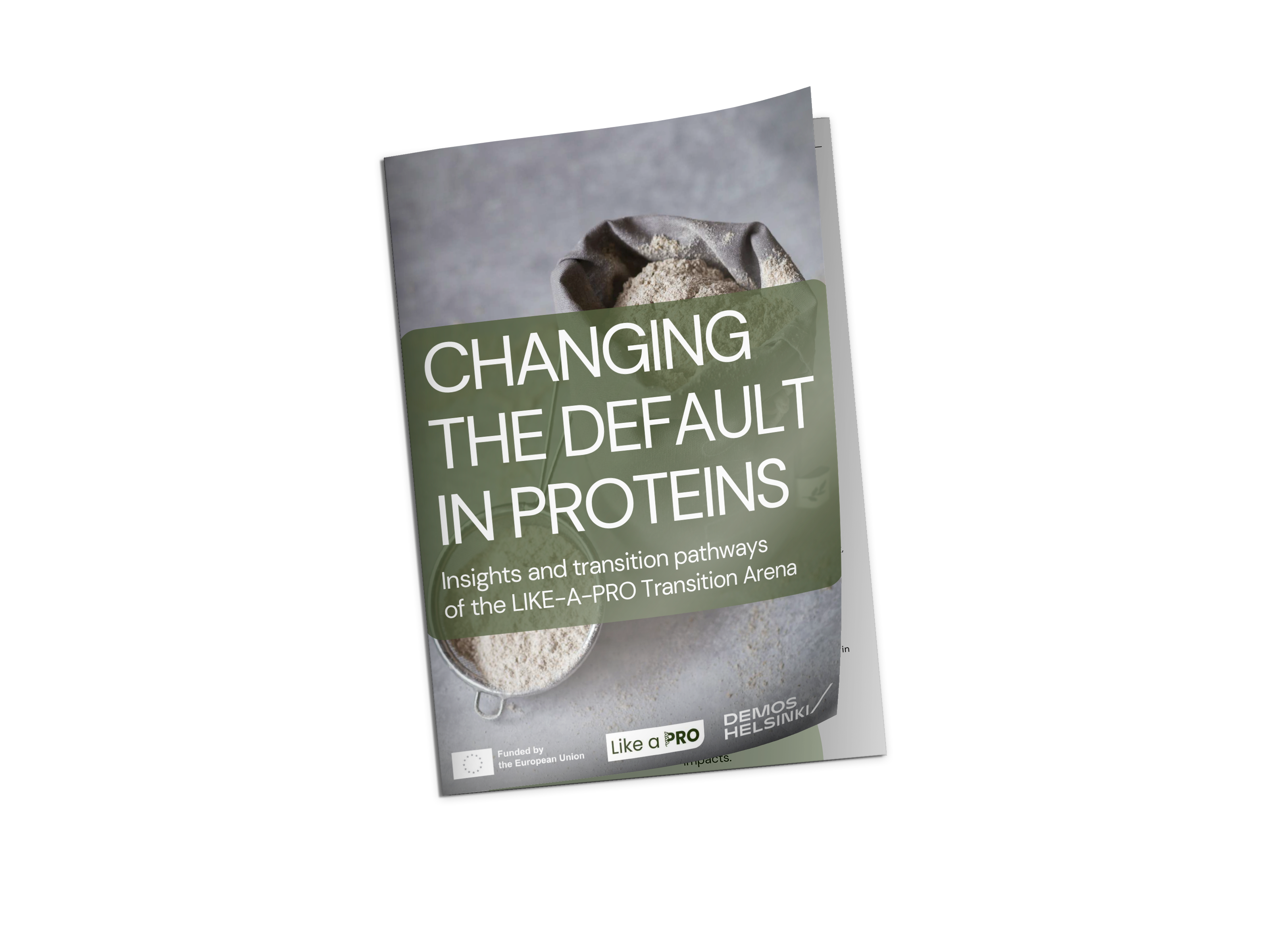
A new report published by the LIKE-A-PRO project, titled Changing the Default in Proteins, brings together the expertise of over 50 frontrunning food actors from 22 different European countries to shed light on a question: What can we do within the next two decades to mainstream alternative proteins in Europe?
The report contains collective insights of the LIKE-A-PRO Transition Arena. The participants, also called as a Food Actor Network (FAN), came together for five workshops held over a period of half a year to co-design a vision, goals, transition pathways, as well as immediate action and policy recommendations for different actors for accelerating the protein shift in Europe.
The FAN’s main message from the Transition Arena is that we must change the default in protein production and consumption. What is today called alternative should be mainstream, and conventional meat proteins should be the alternative ones. The report outlines three key “dual strategies” to support the change:
The main vision created by the Transition Arena for 2040 is the following:
By 2040, alternative proteins have been mainstreamed in Europe. This has made it possible for Europeans to change their diets to consume an average of 300g of red meat per week, following the latest nutrition recommendations in several EU countries.
To map the road from today to this vision, five transition pathways are outlined in the report, consisting of temporally situated societal transitions and transformations towards mainstreaming alternative proteins. The pathways revolve around national commitments, price parity and financial regulation, behavioral change, accelerating alternative protein development, and food and health professionals.
In addition to the transition pathways, the FAN co-created a list of immediate action recommendations for key actors on a national and international level to support accelerating the transitions outlined.
The report provides recommendations for national governments, EU policymakers, education and research organisations, industry actors and retailers within the food supply chains, as well as CSOs and communities.
These recommendations highlight, for example, the importance of national governments for setting targets and using financial instruments for meat reduction, the role of retailers in setting the scene for price parity, as well as the importance of health care professionals in providing information on alternatives to conventional meat.
Changing the default in proteins is a substantial systemic challenge which takes a lot of time. At the same time, the transition begins with small actions: what we eat, promote and have as a default within our institutions, and how we contribute to shaping a more sustainable food system through our work.
The changes described in the report are already taking place in many places. For example, various EU store chains such as Aldi, Ekoplaza, and Lidl have pledged to ensure a greater balance between plant and animal-based proteins in the product sales. Campaigns such as Week Without Meat encourage more and more people to try out plant-based protein diets every year.
Every step, from individual decisions to structural changes, plays a role in making sustainable protein options the new norm. Now is the time to move from awareness to action, ensuring that the momentum for change translates into lasting transformation.